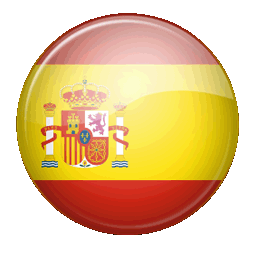What is Thyroid Carcinoma?
The thyroid gland is important for producing hormones. Thyroid Carcinoma is a cancer of the thyroid gland cells, which is very rare in children and young people. Most thyroid carcinomas are differentiated in children, either papillary or follicular. Extremely rarely another type, medullary carcinoma can occur. Thyroid carcinoma is very treatable and is almost always cured.
Who gets Thyroid Carcinoma and why?
Most cases occur in young teenagers but for most there is no underlying cause and it is a random event. Rarely it may be increased in some families, especially medullary carcinoma cases.
Is there a risk of brothers / sisters developing the same cancer or other types of cancer ?
Not usually, except if extremely rarely it is medullary carcinoma of the thyroid.
What are the typical symptoms and signs of thyroid carcinoma?
In most children, thyroid carcinoma develops very slowly. The most common symptom of thyroid cancer is a painless lump in the neck that gradually gets bigger. Other symptoms include: a hoarse voice, for no obvious reason, that doesn’t go away after a few weeks; difficulty swallowing – this can be caused by a thyroid tumour pressing on the gullet (oesophagus); difficulty breathing – this can be caused by a thyroid tumour pressing on the windpipe (trachea).
Which investigations are necessary for a child with Thyroid Carcinoma?
Usually a piece of the lump – biopsy- has been done to make the diagnosis followed by the removal of the whole thyroid gland and tumour. Lymph nodes in the neck may also be removed After being diagnosed with thyroid carcinoma, your child may have further tests to check the size and position of the cancer and whether it has spread to other parts of their body. Tests may include:
- MRI (magnetic resonance imaging) scan – this uses magnetism to build up a picture of your body
- CT (computerised tomography) scan – this uses x-rays to build up a three-dimensional picture of the inside of your body
- PET/CT (positron emission tomography) scan– this uses low-dose radiation to identify areas of cancer.
Are there different stages of the disease?
Most thyroid cancers are limited to the thyroid gland; however, it can be in the lymph nodes in the neck and very rarely in the lung. The latter is usually at a very late stage.
What is the treatment for Thyroid Carcinoma?
Surgery
Hemithyroidectomy or lobectomy
In this operation the surgeon removes half of the thyroid gland. Some people will have this operation to diagnose thyroid cancer. Your doctor may suggest you have a further operation to remove the whole thyroid gland.
Total thyroidectomy
In this operation the surgeon removes the whole thyroid gland.
Surgery to the lymph nodes
Your surgeon may remove the lymph nodes in the front, or front and side of your neck. This is done to:
- remove cancerous lymph nodes
- reduce the risk of the cancer coming back.
Radiotherapy
Radiotherapy to treat the thyroid cancer is usually given as radioactive iodine (a radioactive substance given as a drink). Cancer cells absorb more radioactive iodine than normal cells, and the cancer cells die. Your child may have this treatment after the operation. Before treatment starts:
- Your child will be asked to eat a low-iodine diet. Your health professional will give you information about this.
- Your child may be asked to stop taking thyroid replacement hormones to allow the iodine to work.
- Iodine is radioactive so your child will have to stay in hospital, in a single room, for a few days while the radioactivity leaves your body. Safety measures will be in place, including: your doctor will talk to you about any safety measures you may need to continue at home for a few days.
What are the results of treatment?
The results of treatment are generally excellent and most children and young people are cured with first line treatment. After treatment your child will have to take thyroid hormones for the rest of their life.
What research is happening for Thyroid Carcinoma?
This is mainly happening in adult patients with Thyroid Carcinoma, and involves testing new drugs which target the thyroid cancer specifically, after standard treatment has failed. This rarely needs to be considered in children with Thyroid Carcinoma as their results are so good.
What is EXPert doing for children with Thyroid Carcinoma?
The EXPert group is working for children with Thyroid Carcinoma in many ways:
- Collecting data of children with Thyroid Carcinoma among all European countries
- Creating guidelines for diagnosis and treatment with the goal to optimize the chance of cure
- Giving advice in difficult cases to the responsible clinician at a European level and worldwide
- Collaborating with other Groups to improve knowledge on Thyroid Carcinoma





